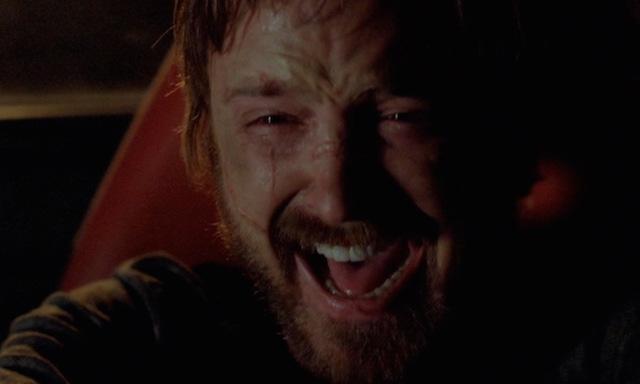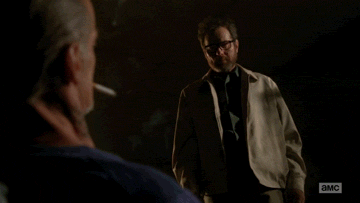Cast your mind back to 'Felina', the final episode of 'Breaking Bad'. So much of it was built around how Walter White would meet his end, what the giant machine gun was going to be used for, how it would be that the series would tie itself off in a way that gave it emotional credibility.
Walter White died as he lived, defiant and angry. That scene where he meet Skyler at her small home and declares, both to her, to himself, and the audience, that he did it all because he was good at it was haunting. That level of vulnerability in a character who was so calculating, so cold-blooded was incredible. A lot of what made 'Felina' so powerful was that embrace of the end.
Walter White knew his time had come, and he had to face it. The early seasons of 'Breaking Bad' explored the dynamic between Jesse and Walter and how the duo's outward appearance - one a science teacher and the other a drug addict - belied their true nature. Walter White, underneath his skin, was a monster. Jesse Pinkman was a good person who deserved better than what he got.
This exploration, although intricate and fascinating, wasn't what pulled 'Breaking Bad' along. At least, not really.
What made 'Breaking Bad' compelling was what creator Vince Gilligan himself had laid out as the show's central premise. Namely, watching Mr. Chips becoming Tony Montana. A well-loved educator turning into a merciless drug lord. The best episodes of 'Breaking Bad', such as 'Face Off', 'Madrigal' or even 'Felina' itself, embraced this understanding.
'Felina' ends with Walter White triumphant, or at least, settling his business once and for all. He's reconciled, such as he can, with Skyler. The neo-Nazis have been brutally murdered, as has Lydia. Jack, the neo-Nazi leader who shot Hank in cold blood, is shot in a similar fashion by Walter.
It ends on such a graceful, final beat that the notion of trying to extend it further is like a disservice to that ending. 'Breaking Bad' went for five seasons, far less than other prestige shows of the era. 'The Sopranos', for example, ran for six seasons with 86 episodes, total. 'Game of Thrones' will end with 73 episodes under its belt.
The best television shows know when to quit when they're ahead. More to the point, they know how to tell a story and understand that an ending to a story is often the most vital component. 'The Wire', which ran for 60 episodes, worked as a sprawling odyssey of life in Baltimore and rounded itself entirely on the ending.
'Breaking Bad' rounded itself on its ending. It set it up from the opening episode, where Walter hurriedly explains his actions, that he did it for his wife and family as he faces what he believes to be his end, then. When we see Walter face the end, he has been honest with himself at last. He embraced it, and then left.
Jesse Pinkman was, by his very nature, a reflection of Walter White. He was the contrast and the moral conscience of the series, even though he was initially introduced as a criminal. There's no story that can be told about the character that would conceivably be interesting enough for it to exist.
What really can Jesse Pinkman do? Is he going to go back to cooking meth? It seems unlikely. Will he have further dealings with neo-Nazis? Will they continue to hunt him? It's doubtful, considering how final Walter White's actions were. When Jesse burst through the gates at the end, riding off into the night, that was enough of an ending. The measure of uncertainty was enough, and it didn't warrant further exploration then - and it doesn't now.
















































































